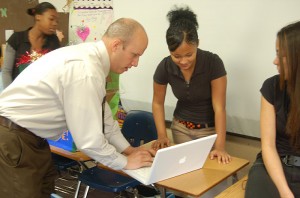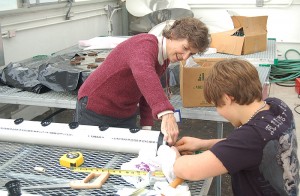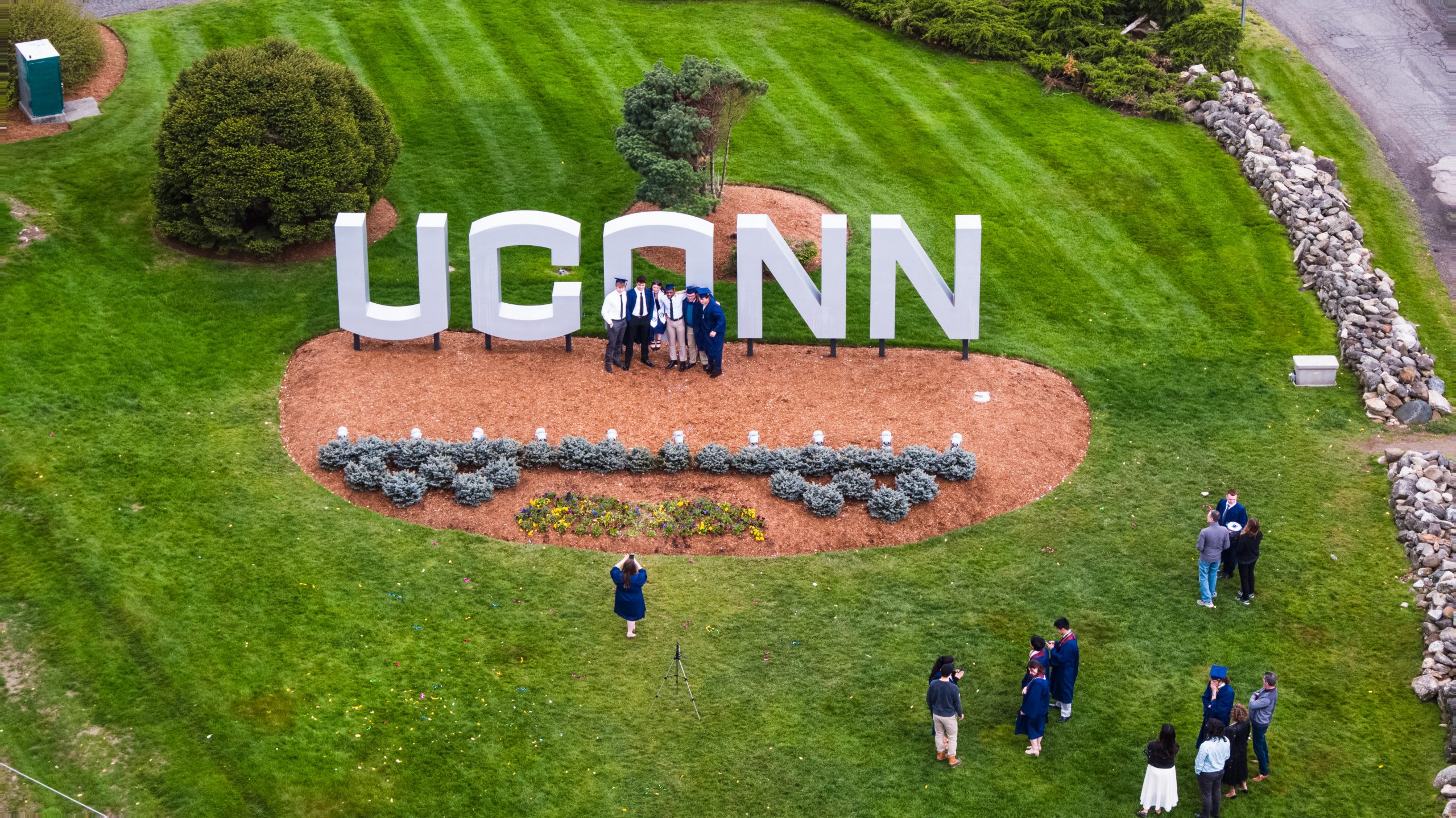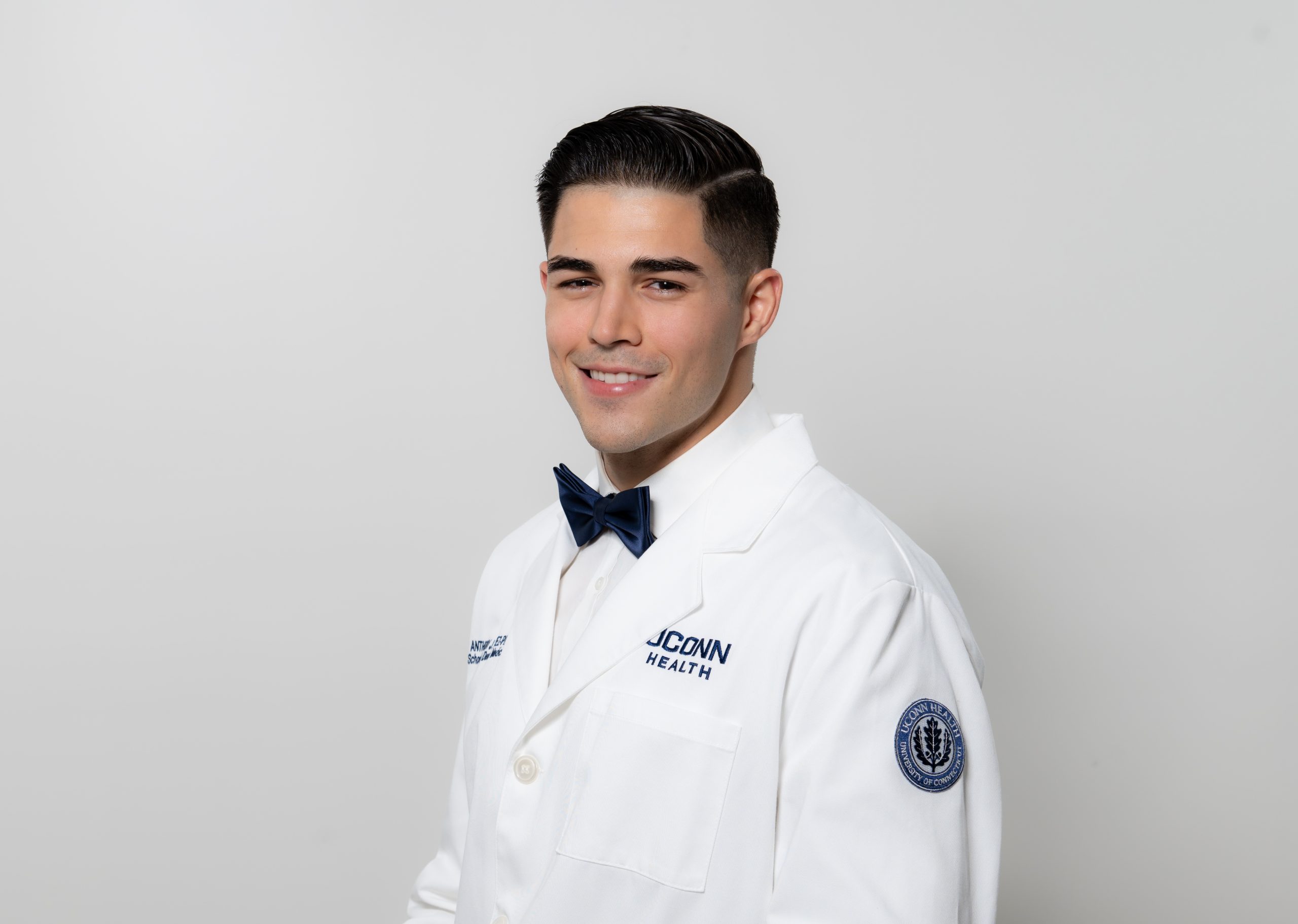After leaving a marketing job in New York City, Krislyn Petti set her sights on a teaching career. A University of Connecticut program helped her make the switch.
Petti, who previously worked for an airline cargo company, is one of the first group of graduates from a yearlong teacher preparation program run by UConn’s Neag School of Education at the Waterbury Campus.
A dozen graduates from Waterbury joined 42 others from the Greater Hartford Campus who completed the Teacher Certification Program for College Graduates in the spring. Many, like Petti, have switched careers.
“I liked [the airline job] a lot, but it wasn’t fulfilling enough,” says Petti, 26, who left the job and taught English as a second language briefly in Italy and later in New York before signing up for the UConn program last year. “I fell in love with [teaching],” she says.
The Teacher Certification Program for College Graduates offers a master’s degree and certification in one year. Though it is an accelerated route to teacher certification, the 45-credit graduate level program offers students a rigorous and varied set of clinical and academic activities.
“I wanted to just get this done as fast as I could because it was a career switch,” Petti said. She is now looking for a job as a high school English teacher.
The certification program has operated in its current form since 2001 at UConn’s Greater Hartford Campus and expanded to the Waterbury Campus this past year. It is designed to attract recent college graduates or professionals from other careers into teaching by providing an accelerated path to certification.
Among this year’s graduates, for example, are newly certified teachers who once worked as an urban planner, a telephone company technology specialist, and a submarine crewman, says Michael Alfano, the program director.
“We’ve had Fortune 500 executives changing careers,” Alfano says. “I can think of career military guys who have changed careers. … There are just so many different stories.”

Over the past two decades, accelerated certification programs sprang up across the nation, as schools sought to recruit professionals from other careers to bring new expertise to the classroom and to ease shortages of teachers in subjects such as mathematics and science.
At UConn, the graduate certification program includes courses such as learning theory, educational technology, and methods of assessment, along with a full semester of student teaching.
After working in other careers, the prospective teachers “bring a whole set of life experiences that can enrich the learning experience for students,” Alfano says. “These might be people who have sat on local school boards, active in community activities – people who can give a perspective a 21-year-old might not have.”
Many are in their 30s or 40s.
“I can’t wait to have my own classroom,” says Jeff Naidorf, 35, one of this spring’s Waterbury Campus graduates. Naidorf, of Middletown, was a submarine mechanic with the U.S. Navy until 2005 and later worked at a natural gas plant. He did his student teaching at a middle school in Waterbury.
Naidorf, an English teacher, describes the certification program as rigorous. “There is so much information they pack into a year. It’s a lot of work,” he says. “There’s a lot of reading. They set a high standard.”

Janet McAllister, 50, a former environmental health officer, says she was attracted to the UConn program in part because of its condensed one-year format.
“I knew there were other programs that were very accelerated,” such as the state-operated nine-week summer certification program known as the Alternate Route to Teacher Certification, she says. “But I worried about not having enough preparation.
“I like the comprehensive nature of TCPCG,” says McAllister, who did her student teaching in an agriculture program at Southington High School last fall. “I feel like I’ve learned a tremendous amount.”
Previous graduates of the program are working in more than 30 school districts across the state. The Berlin Public Schools system, for example, has hired at least a half dozen candidates from the program, says Superintendent of Schools Michael Cicchetti.
“I know firsthand what the expectations are for students in that program,” Cicchetti says. “They’re consistent with what we expect for teaching in Berlin.”
Petti, the former airline employee, has sent applications to four or five school systems. She hopes to land a job in an urban school, and says she is pleased with her training at UConn.
“It’s a great program,” she says. “The reputation of UConn is stellar. … When you have that on your résumé, it’s really something to be proud of.”
To find out more about the program and the new scholarships available, information sessions will be held at both the Waterbury and Greater Hartford campuses this fall. Details are available at the Teacher Certification Program for College Graduates (TCPCG) page.


